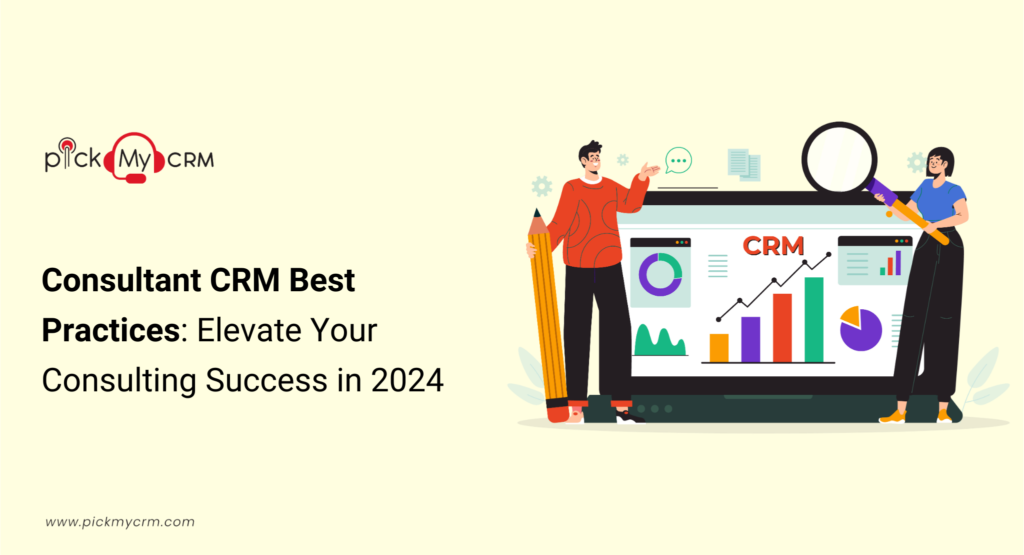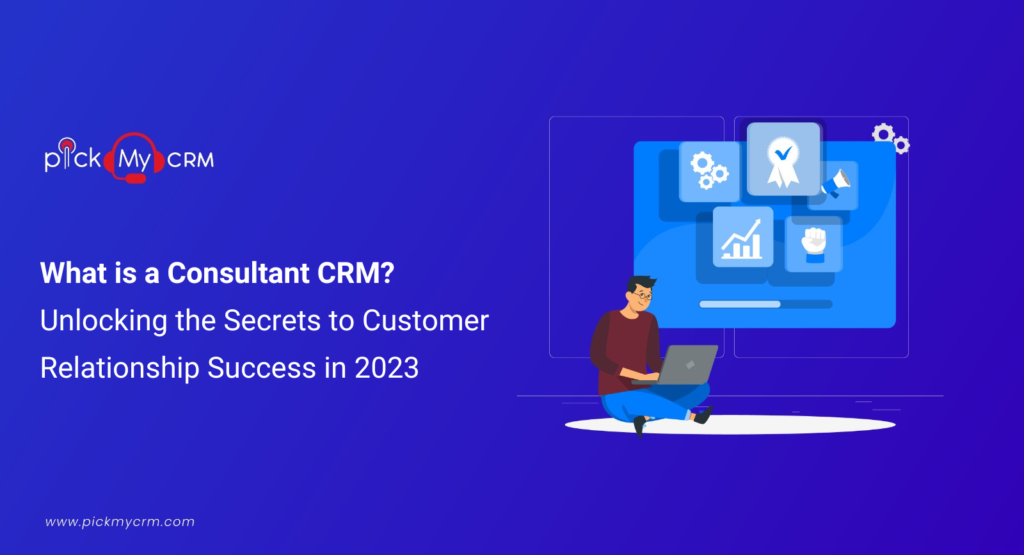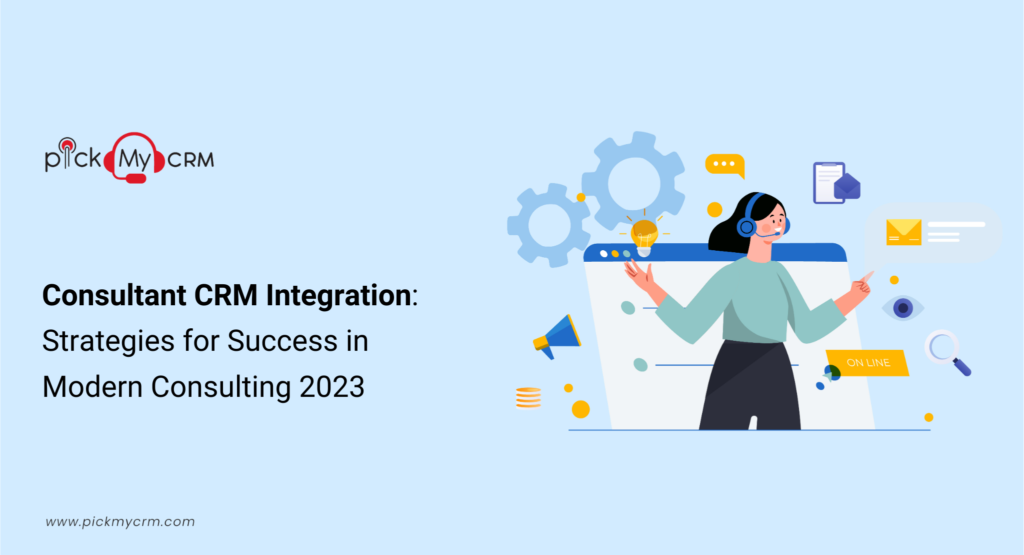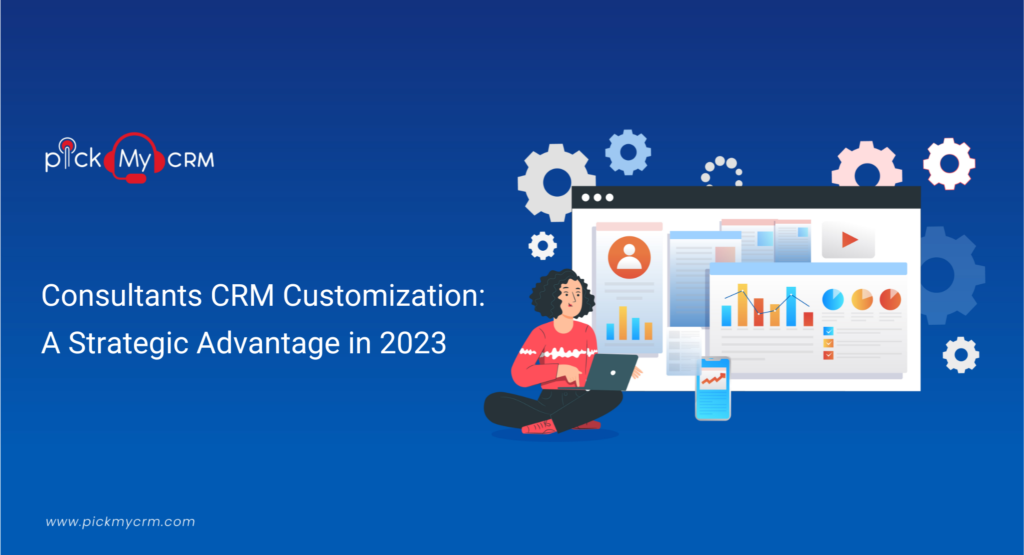Consultant CRM Best Practices: Elevate Your Consulting Success in 2024

Recent Stats Highlighting Consultant CRM Impact
Before we delve deeper into the world of consultant CRM best practices, let's take a moment to reflect on some recent statistics that underscore the growing importance of CRM systems in consultancy. According to a report by, 72% of successful consultancies attribute a significant portion of their success to the effective use of CRM software. It's an Indicator that the appropriate CRM system can make or break a consultancy's future. Now, armed with this knowledge, let's explore how you can harness the full potential of CRM systems to propel your consultancy to new heights.
Deciphering Consultant CRM Best Practices
Consultant CRM Best Practices are a set of meticulously crafted strategies that empower consulting firms and individual consultants to maximize the efficiency and profitability of their CRM systems. While many consultancies invest in CRM solutions, not all extract the value, leading to missed opportunities for increased productivity and revenue. Key Consultant CRM best practices include,- Allocating dedicated time for CRM implementation and team training
- Selecting a CRM vendor offering robust support and onboarding assistance
- Conducting thorough needs analysis before CRM solution selection
- Embracing automation to optimize processes
Understanding the Purpose of Consultant CRM
A Consultant CRM's core purpose is to enhance client relationships and consulting project management. It enables a client-centric approach, prioritizing the nurturing of strong client connections. Modern Consultant CRM systems offer advanced features Such as project management, client communication, and document management. These capabilities empower consulting firms to enhance service quality, increase project efficiency, and boost overall business productivity. Explore how implementing the following Consultant CRM best practices can transform your consulting firm. These approaches not only Uphold data integrity but also guarantee your team efficiently utilizes the CRM's capabilities. Moreover, we'll explore real-world examples of successful consulting firms and Delve into how they've effectively applied these CRM practices.Streamline CRM Implementation
Introducing a CRM is a continuous journey, not a final destination. While modern CRMs often provide ready-made features, customizing them to suit your requirements is crucial. Invest in demos, utilize free trials, and consider premium CRM plans with live implementation support for larger teams. Don't overlook data migration, a critical phase in combining customer data from various systems. Example of a consulting firm that has benefited from it: Toyota's Methodical Approach A consulting giant like McKinsey & Company emphasizes selecting the right CRM platform and providing comprehensive training to its consultants before full-scale implementation. This meticulous approach ensures they fully harness the CRM's capabilities, resulting in efficient project management and superior client service.Standardize Data Management
After CRM implementation and onboarding, prioritizing client data and metrics is vital. Establishing data entry standards is essential to maintain consistency across consulting departments, each with its unique data sets and KPIs. CRM systems offer transparency to all team members in your consulting organization, ensuring efficient data management and analysis. CRM systems can automate the utilization of client information effectively. It includes seeking contacts on platforms like LinkedIn or centralizing business roles and contact details, such as email addresses and phone numbers. These nuances serve as crucial bridges between marketing efforts and client management. Integrating data standards into your initial CRM strategy holds equal importance for small consulting startups and established firms. This practice safeguards against data loss or obscurity as your consulting business expands. Example of a consulting firm that has benefited from it: Expedia's Global Standardization Deloitte, a global consulting leader, operates across diverse sectors. Standardized data management practices are crucial for Deloitte to maintain data accuracy across its multifaceted consulting projects. Consistent data standards facilitate efficient project management, client engagement, and data-driven decision-making.Harness Automation for Efficiency
Automation is pivotal in Consultant CRM solutions, eliminating repetitive tasks and allowing consultants to concentrate on strategic, high-value work. This shift enhances project management, client communication, and overall consulting efficiency. Basic automation covers reminders, notifications, and messaging workflows. Marketing automation targets content for client segments. Workflow automation ensures prompt client communication with specific consultants. Large consulting firms benefit from business process automation, often within ERP systems, for advanced capabilities. Automation ensures real-time data accuracy, Vital for robust reporting and project management. An example of a consulting firm that has benefited from it Accenture, a global consulting and professional services firm, utilized automation for enhanced project management and client communication. This streamlined operations, improved project outcomes, and boosted client satisfaction.Leverage Analytics for Informed Decisions
Analytics is a core aspect of Consultant CRM software. It empowers consulting firms by transforming complex, multifaceted activities into accessible insights for all team members. Customizable reports enable consultants to tailor data visualization to highlight critical project metrics, client engagement patterns, and revenue generation sources. These reports empower consulting firms to identify project bottlenecks, gauge consultant performance, and assess the impact of marketing efforts on project profitability. For larger consulting firms, CRM analytics expands beyond project management to include supply chain analysis, resource allocation, and financial forecasting. They also assist in recognizing market trends and offering insights for developing new consulting services. Example of a consulting firm that has benefited from it: Boston Consulting Group (BCG) Boston Consulting Group (BCG), a renowned consulting firm, harnesses CRM analytics to enhance project management and client interactions. BCG uses analytics to customize consulting solutions, evaluate consultant performance, and identify market trends, enabling the delivery of cutting-edge consulting services to clients.Elevate Client Relationships
Consultant CRM software primarily aims to enhance client relationships and streamline consulting project management. Leveraging CRM features for improved client interactions through self-service options is essential. Empower clients to access information independently, reducing their reliance on consulting staff. Self-service tools can include knowledge bases, FAQs, and client portals that facilitate tasks like project status tracking. By reducing the need for direct client interactions, a Consultant CRM streamlines consulting operations, allowing consultants to allocate more time to complex tasks. An Example of a consulting firm that has benefited from it A boutique consulting firm specializing in financial advisory services leverages CRM self-service tools to enhance client relationships. Clients can access a comprehensive knowledge base, track project progress, and gain insights into their financial portfolios. This approach fosters client empowerment and engagement.Define Clear CRM Objectives
Maintain transparency in your CRM goals, whether you seek to enhance sales, implement cross-selling and upselling strategies, or strengthen client relationships. While a Consultant CRM won't transform your consulting practice overnight, it should deliver measurable benefits. Maintain realistic expectations, closely monitor progress, and be ready to adapt as results unfold. Transparency in setting CRM goals is crucial whether you want to enhance sales, boost cross-selling and upselling, or fortify client relationships with a Consultant CRM. While it won't revolutionize your consulting practice overnight, it should yield concrete advantages. Maintain realistic expectations, monitor progress diligently, and be ready to adjust your strategy as results become evident. An Example of a consulting firm that has benefited from it Prominent consulting firms like PwC align CRM goals with their specific consulting domains, whether auditing, tax consulting, or advisory services. This targeted approach enables them to optimize CRM utilization and elevate client engagement and service quality.Best Practices for Consultant CRM Optimization
Now that we've covered the fundamental principles. Let's dive into precise best practices for optimizing your Consultant CRM. A well-tailored CRM system designed for consulting can transform client management, project execution, and consulting efficiency. Yet, achieving this transformation entails more than just minor software adjustments. In addition to the overarching CRM practices outlined earlier, consider the following best practices tailored to Consultant CRM setup, ongoing optimization, data management, and marketing information,Best Practices for Consultant CRM Setup and Adoption
- Involve sales, marketing, and client service teams to gain comprehensive insights into CRM user requirements.
- Select a Consultant CRM system that caters to the unique needs of your consultants.
- Aggregate data from multiple sources to create project reports.
- Prioritize team training before CRM implementation to ensure proficiency.
- Collaborate closely with the CRM's onboarding or support team to ensure smooth adoption.
Ongoing Consultant CRM Optimization
- Start by establishing efficient project management processes and implement marketing automation.
- Create customized workflows, pipelines, and ownership structures aligned with your consulting project lifecycles.
- Utilize real-time data to update and expand your client personas.
- Regularly review and refine workflows to adapt to evolving consulting requirements.
- Engage in post-project activities to nurture client loyalty and retention.
Best Practices for Consultant CRM Data Management
- Define and track individual performance metrics for various consulting channels.
- Leverage CRM data to create personalized client experiences and project management.
- Standardize data tags and names for consistency and easy retrieval.
- Implement data validation processes to minimize the risk of human errors.
- Conduct periodic data audits to maintain data quality and reliability.
Best Practices for Utilizing CRM in Consulting Marketing
- Explore social media advertising to expand your consulting firm's online presence.
- Focus on attracting potential clients to fuel your consulting project pipeline.
- Engage in introductory talks at industry events to increase your consulting firm's visibility.
- Utilize CRM data to monitor website interactions and tailor marketing strategies.
- Leverage marketing data to gain insights into prospect interests, content engagement, and overall engagement levels.



